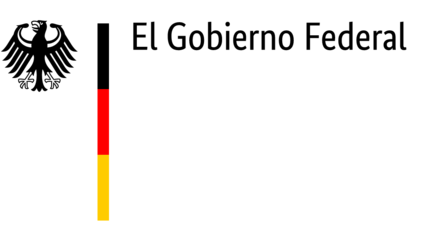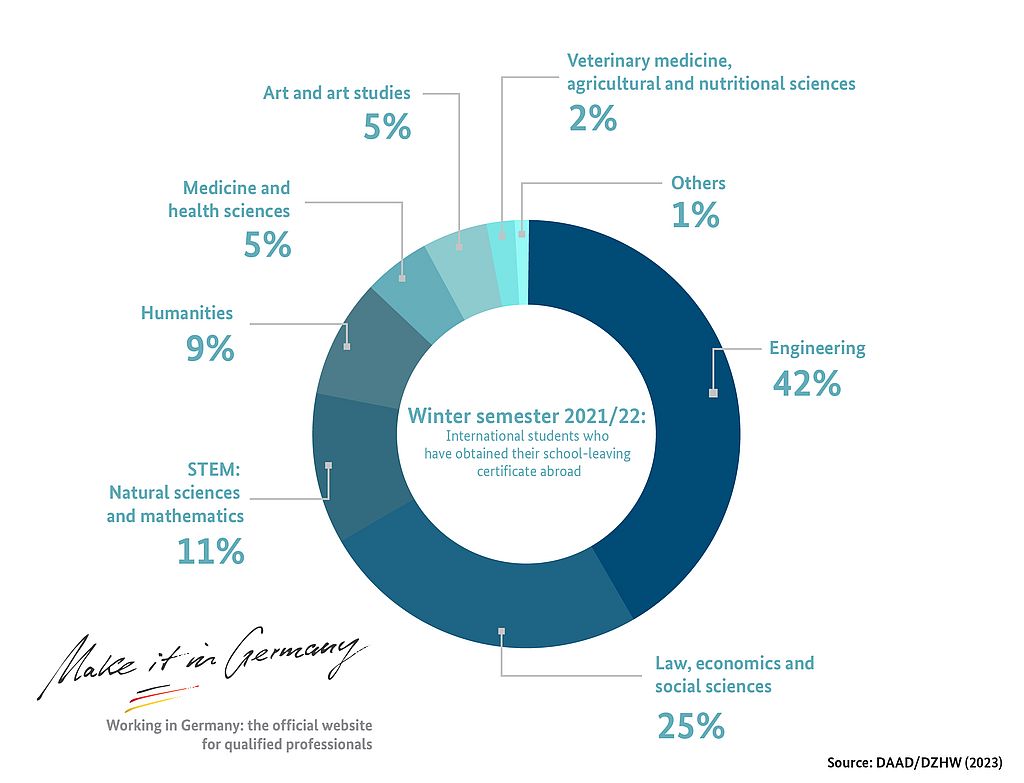International students as the skilled workers of tomorrow
Correct as of: 15/03/2023
Can Germany’s universities act as a gateway for qualified migrants? More than a third of international students from non-EU countries stay in Germany for a longer period. [1] When it comes to filling vacancies, German companies should therefore be open towards this promising target group. This article explains what you need to bear in mind concerning their access to the labour market.
Overview: International students in Germany
Germany is one of the countries most preferred by international students, partly because they have relatively good access to the labour market not only during their studies, but also after graduation. According to the German Academic Exchange Service (DAAD), 349,438 international students who had obtained their school-leaving certificate abroad[2] were enrolled at German universities in the winter semester 2021/22.[3]
With regard to the choice of subjects, engineering is by far the most popular subject group among international students (145,707 students, corresponding to a share of around 42%), followed by law, economics and social sciences (25%), and mathematics and natural sciences (11%). In view of the shortage of skilled workers, German companies may be particularly interested in the fact that the proportion of international students with a degree in a STEM subject is higher than that of their German counterparts, and that international graduates have a higher-than-average qualification level in STEM subjects compared to German graduates (e.g. a Master’s degree or a doctorate).[4]


